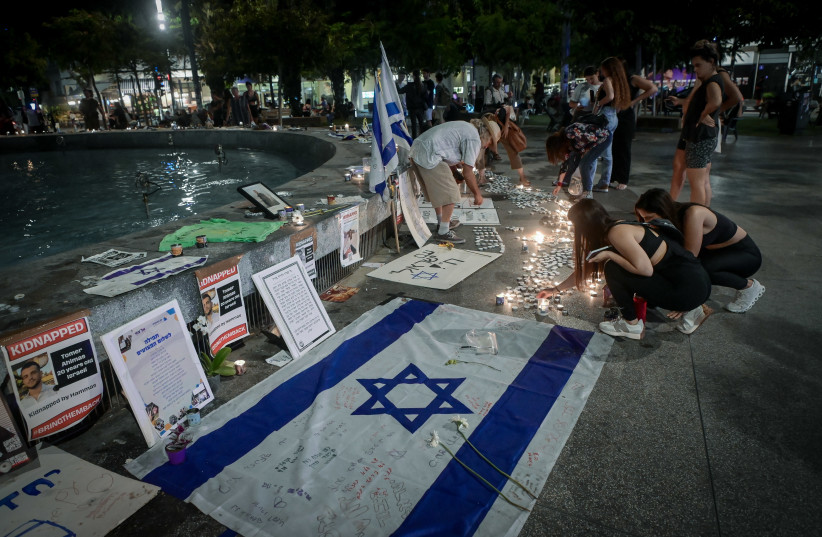Contrary to rumors and claims on social media and in the press, there has not been an increase in suicides by Israelis since the Hamas attack on October 7 and the subsequent war in Gaza, according to the Health Ministry and its National Suicide Prevention Council. In fact, the numbers have even decreased.
Dr. Gilad Bodenheimer, head of the ministry’s Mental Health Division, and Prof. Gil Saltzman, head of the ministry’s National Suicide Prevention Council, on Thursday said they seek to debunk the rumors of an increase in suicide rates over the past three months.
The National Suicide Prevention Council is comprised of a team of experts from academia, the health system, government ministries, and patient and family associations. It has been following trends in suicidal behavior since October 7.
The data does not indicate an increase in suicides. They even show a decrease in suicides in Israel in the October-December period, compared with those months in recent years, including during the COVID-19 pandemic. According to the data, the current rate is lower than the monthly average even
in the other months of the year.
The council was also presented with data from other bodies that showed a similar trend. The absence of an increase was attributed to the social cohesion during an emergency and the attention of the person suffering from mental pain to the external threats and survival and not to the internal or personal threats.

Defense mechanisms against trauma
The information was based on data from the Institute of Forensic Medicine, where most of the suicide cases occur every year, and hospital reports.
In an average year, more than 500 Israelis – more men than women – commit suicide, and about 6,200 people – more women than men – attempt it. In the index of age-standardized suicide rates, Israel is ranked third-lowest for men and fifth-lowest for women, compared with 27 countries.
Suicide is the second-most common cause of death for males aged 15 to 24 and the third-most common cause for females aged 15 to 24 and for males aged 25 to 44. Suicide rates were higher among recent Ethiopian immigrants and somewhat higher among those who came from the former Soviet Union since 1990 – although the rate among them has remained stable since 2000.
The ministry and its council said the “Israeli spirit” allows the majority of the population to deal with difficult events with the help of the natural resilience mechanisms that exist in each person’s soul. Community forces that also rely on mutual guarantee and community resilience also help to deal with national traumatic events.
Normally, after a trauma, there are various symptoms that, if they persist, require emotional therapy as early as possible; this helps in reducing mental distress and makes possible a faster return to function. Initial intervention can often prevent the development of post-traumatic symptoms, which is why it is extremely important.
The ministry promised to increase emotional care for the whole population at resiliency centers and the public health funds.
“While the latest data show that there is no increase in suicide in this period, do not diminish the intensity of the difficulties that we all experience, but strengthen the understanding that our psyche knows how to muster forces for survival and coping,” Bodenheimer said. “We are all required to take
responsibility to allow the mind to rest – to return to routine as much as possible, to avoid watching horrors on the TV news and the social media, and not to rush to conclusions that could increase despair instead of hope.”
Salzman, who is also director of the Gaha Mental Health Center, said: “Along with these data, the council was presented with data of a significant increase in distress calls to ERAN and other voluntary emotional-relief hotlines by tens of percent, along with a rise in requests for assistance from the
health insurance funds and in the use of tranquilizers and anti-anxiety drugs. This increase may herald a change in trend. At the end of the fighting, there must be increased awareness and assessments of the counseling and mental-health services throughout the system.”
Information on the phone numbers at the resilience centers, associations that provide support, and the health funds can be found at: https://datadashboard.health.gov.il/portal/dashboard/health.
